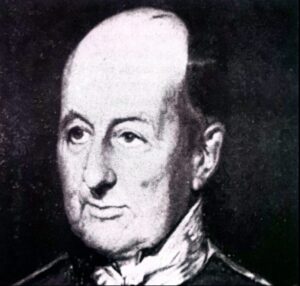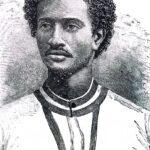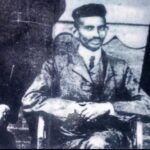D’URBAN, BENJAMIN
- 3 Min Read
Sir Benjamin D’Urban (February 16, 1777-May 25, 1849), soldier and administrator in South Africa and other parts of the British Empire, was born in Halesworth, Suffolk, England. He attained distinction during the Peninsula War and in 1819 was promoted to the rank of major-general. Having held various military positions in the British Isles and the West Indies, he obtained a number of minor gubernatorial appointments (Antigua, 1820; Demerara-Essequibo, 1824; British Guyana, 1831).

PHOTO CAPTION: Benjamin D’Urban. SOURCE: EA Library.
Between 1834 and 1838, a period of crucial importance in the history of South Africa, D’Urban served as governor and commander-in-chief of the Cape Colony. His period of office witnessed: the abolition of slavery in the Cape, as in the entire British Empire (1834); the creation of a Legislative Council for the Cape (originally a nominated body, later to become a full-fledged legislature, first set up in 1834); the most serious frontier war as yet waged against the Cape Colony’s African neighbours (1834-1835); the beginnings of municipal self-government for whites (1836); and the start of the Great Trek of Afrikaner frontiersmen from the Cape Colony into the far interior (begun 1836).
D’Urban’s most difficult problem was to defend and pacify an enormous frontier with a minute military force and scanty revenue. He attempted to carry out this task by making treaties with local chiefs for the purpose of establishing a measure of indirect control. In 1834, for instance, D’Urban concluded an agreement with Andries Waterboer, a Griqua chief, who vowed to side with the Cape Colony in local disputes in return for a financial subsidy, arms, and ammunition. A similar treaty was made with Umziligazi, king of the Ndebele (Matebele) in 1836.
The treaty system, however, proved of scant value on the eastern frontier where white colonists and indigenous African communities engaged in bitter disputes over arable land, water, grazing grounds, and cattle.
In 1835 D’Urban annexed the region between the Keiskamma and Kei rivers (known as the Province of Queen Adelaide), and unsuccessfully attempted to drive the hostile tribes beyond the Kei. D’Urban’s “forward” policy, one most favourable to the white frontiersmen, was, however, repudiated by the British Government which, in 1836, abandoned the Province of Queen Adelaide. D’Urban was equally unsuccessful in checking the Great Trek; he personally sympathised with the trekkers, but neither threats nor promises were able to prevent the Afrikaner exodus.
D’Urban likewise failed to get his way when he suggested the annexation of Natal, a project favoured by London. D’Urban’s disagreements with the Imperial government were such that in 1837, Lord Glenelg, the new British Colonial Secretary, decided to recall the governor. The white colonists, on the other hand, continued to hold D’Urban in high regard. The City of Durban in Natal was named in his honour.
D’Urban later achieved promotion to the rank of lieutenant-general in the British Army. In 1847 he was appointed to head the British forces in Canada, where he died in Montreal.
L. H GANN




